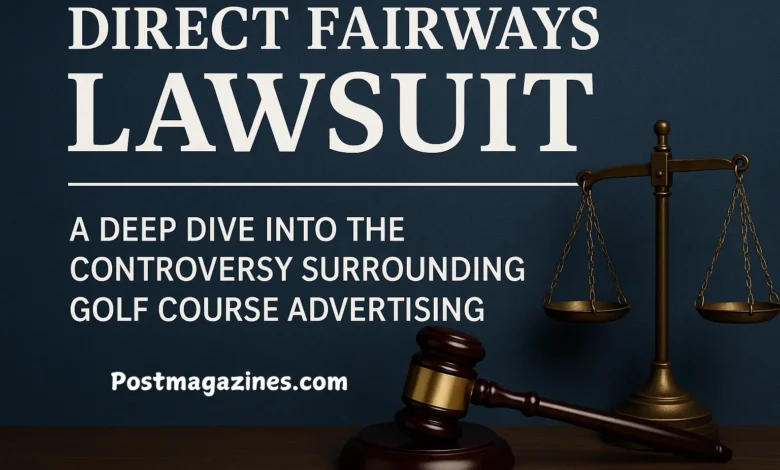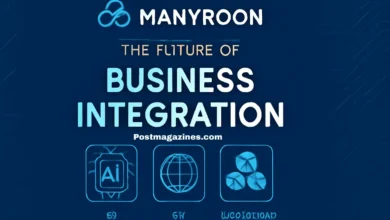Direct Fairways Lawsuit: A Deep Dive Into the Controversy Surrounding Golf Course Advertising

In recent years, the name Direct Fairways has become a popular topic in marketing and advertising, especially among golf course affiliates and small businesses. What began as a seemingly promising advertising venture has spiraled into a full-blown legal battle marked by complaints, lawsuits, and serious accusations. The Direct Fairways lawsuit has drawn attention for its implications on business ethics, contractual transparency, and employment law. In this article, we’ll explore the company’s origins, the key allegations that sparked legal action, the responses from the company, and the broader impact on the advertising industry.
What are Direct Fairways?
Direct Fairways LLC is a marketing and advertising company that gained traction by offering promotional opportunities on golf course materials such as scorecards, yardage books, and tee signs. Their model appealed to small businesses, promising exposure to high-value clientele who frequent golf courses.
The pitch was simple: pay a fee to advertise your business on local golf course materials. Many small companies saw this as a unique way to reach a more affluent demographic.
How the Lawsuit Emerged
Despite its seemingly innovative model, Direct Fairways began facing mounting complaints from advertisers, former employees, and golf course representatives. These grievances soon culminated in legal action. The Direct Fairways lawsuit officially gained public traction around 2022, with civil complaints and potential class-action filings.
The primary allegations include:
- Misleading Sales Tactics
- Non-Delivery of Services
- Unapproved and Recurring Charges
- Labor Law Violations
- Deceptive Business Practices
Allegation 1: Misleading Sales Practices
One of the central themes in the lawsuit is that sales representatives allegedly misrepresented the terms of the advertising agreements. Many clients were led to believe their advertisements would be prominently featured on materials used by prestigious golf courses.
However, several customers reported that:
- Their ads never appeared.
- Golf courses in the agreements were unaware of any partnership with Direct Fairways.
- There was no evidence that the materials were ever printed or distributed.
This bait-and-switch-style approach has been cited in numerous complaints submitted to the Better Business Bureau (BBB), the Federal Trade Commission (FTC), and various state attorney general offices.
Allegation 2: Non-Delivery of Promised Advertising
A significant portion of the legal complaints revolves around the non-delivery of the promised advertising materials. Small businesses that paid hundreds or thousands of dollars to be featured on yardage books or scorecards claim they never received a copy of the final product. More alarmingly, some golf courses named in the contracts claim they never approved, distributed, or even saw these materials.
This raises serious concerns about fraud, especially when clients were shown mock-ups and proofs that never materialized into actual products.
Allegation 3: Unauthorized Charges
Multiple clients of Direct Fairways reported unauthorized and repeated charges on their credit cards or bank accounts. Despite agreeing to a one-time payment, several customers claimed to have been charged:
- Additional monthly or quarterly fees without notice
- Renewal fees, despite not agreeing to continued services
- Charges are even after canceling or disputing the original agreement
These complaints and difficulties obtaining refunds or customer support responses intensified scrutiny of Direct Fairways’ billing practices.
Allegation 4: Labor Law Violations
Beyond customer-facing issues, the Direct Fairways lawsuit also includes claims from former employees who allege labor violations. These individuals claim they were misclassified as independent contractors rather than employees, resulting in:
- No access to employee benefits
- No job security or legal protections
- Wage discrepancies and unpaid commissions
This raises red flags under state and federal labor laws, particularly in jurisdictions with tightly regulated classifications.
Allegation 5: Deceptive Business Practices
A broader accusation is that Direct Fairways engaged in systematic, deceptive business practices. This includes:
- Failing to disclose full terms and conditions
- Using high-pressure sales tactics
- Ignoring refund requests or disputes
- Using misleading testimonials or endorsements
These issues go beyond poor customer service—they strike at the heart of consumer protection laws, particularly those that protect small businesses from predatory vendors.
Legal Actions Taken
Class-Action Lawsuit
In 2022, a class-action lawsuit was launched against Direct Fairways on behalf of numerous clients who alleged they were scammed. The suit is ongoing and includes a growing list of plaintiffs from various states, particularly Arizona, where the company is headquartered.
Better Business Bureau Involvement
The BBB has logged dozens of complaints against Direct Fairways, which resulted in a low business rating. The patterns of complaints led the BBB to issue advisories regarding the company’s practices.
Governmental Oversight
State attorneys general, particularly in Arizona and California, have received complaints and have launched preliminary investigations into Direct Fairways. If sufficient evidence is gathered, regulatory penalties or criminal charges may follow.
Direct Fairways’ Response
In the face of these allegations, Direct Fairways has denied any wrongdoing. The company claims that:
- All customers agreed to the terms outlined in the contracts.
- Materials were printed and distributed as promised, although delays may have occurred.
- Any billing errors were isolated incidents and corrected promptly.
- Contractors were hired with full knowledge of their independent status.
While Direct Fairways has sometimes issued refunds, many customers report that these were only offered after public complaints or legal threats.
What This Means for Small Businesses
The Direct Fairways lawsuit serves as a cautionary tale for small businesses navigating the world of third-party marketing. It highlights the importance of:
- Reading contracts carefully
- Verifying the legitimacy of promotional partners
- Asking for references or proof of performance
- Keeping documentation of all communications and transactions
Small businesses, particularly those with limited marketing budgets, must be vigilant when investing in advertising opportunities that promise high returns.
Lessons for the Advertising Industry
For the broader advertising and marketing sectors, the lawsuit underscores the need for:
- Greater transparency in sales tactics
- Improved customer service standards
- Ethical conduct in client and contractor relations
- Increased oversight and industry regulation to prevent abuses
The controversy may also trigger a reevaluation of how golf course marketing is managed and who gets to control branding on recreational properties.
How to Protect Yourself From Similar Scams
If you’re a business owner evaluating third-party marketing services, consider the following steps:
- Check BBB Ratings and Reviews
- Search for the company on social media and forums
- Contact the venues claimed in the pitch to confirm partnerships
- Demand written contracts with clearly defined deliverables
- Request a refund policy in writing
- Use credit cards (with fraud protection) for payments
Conclusion
The Direct Fairways lawsuit reveals the dark side of niche marketing services and highlights the importance of due diligence, contract transparency, and consumer rights. While the outcome of the legal proceedings is still pending, the controversy has already changed how small businesses view third-party advertising offers.
As more plaintiffs come forward and regulatory bodies intensify their investigations, the fate of Direct Fairways could set new legal precedents in business advertising accountability. If you’ve been affected by Direct Fairways, you are encouraged to contact your state attorney general or join the ongoing class-action efforts.
In recent years, the name Direct Fairways has become a popular topic in marketing and advertising, especially among golf course affiliates and small businesses. What began as a seemingly promising advertising venture has spiraled into a full-blown legal battle marked by complaints, lawsuits, and serious accusations. The Direct Fairways lawsuit has drawn attention for its implications on business ethics, contractual transparency, and employment law. In this article, we’ll explore the company’s origins, the key allegations that sparked legal action, the responses from the company, and the broader impact on the advertising industry.





